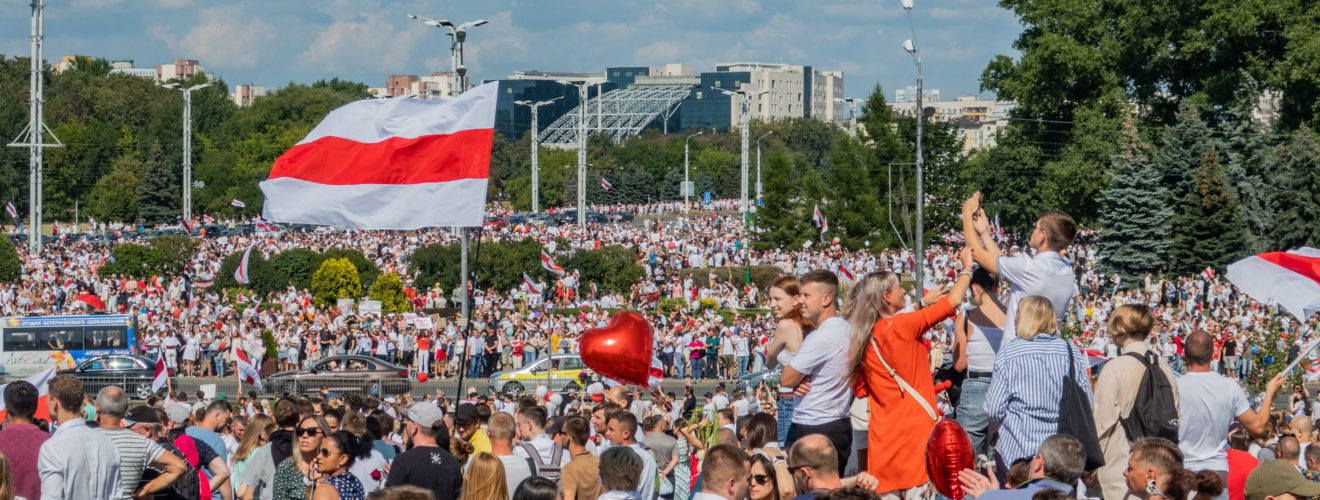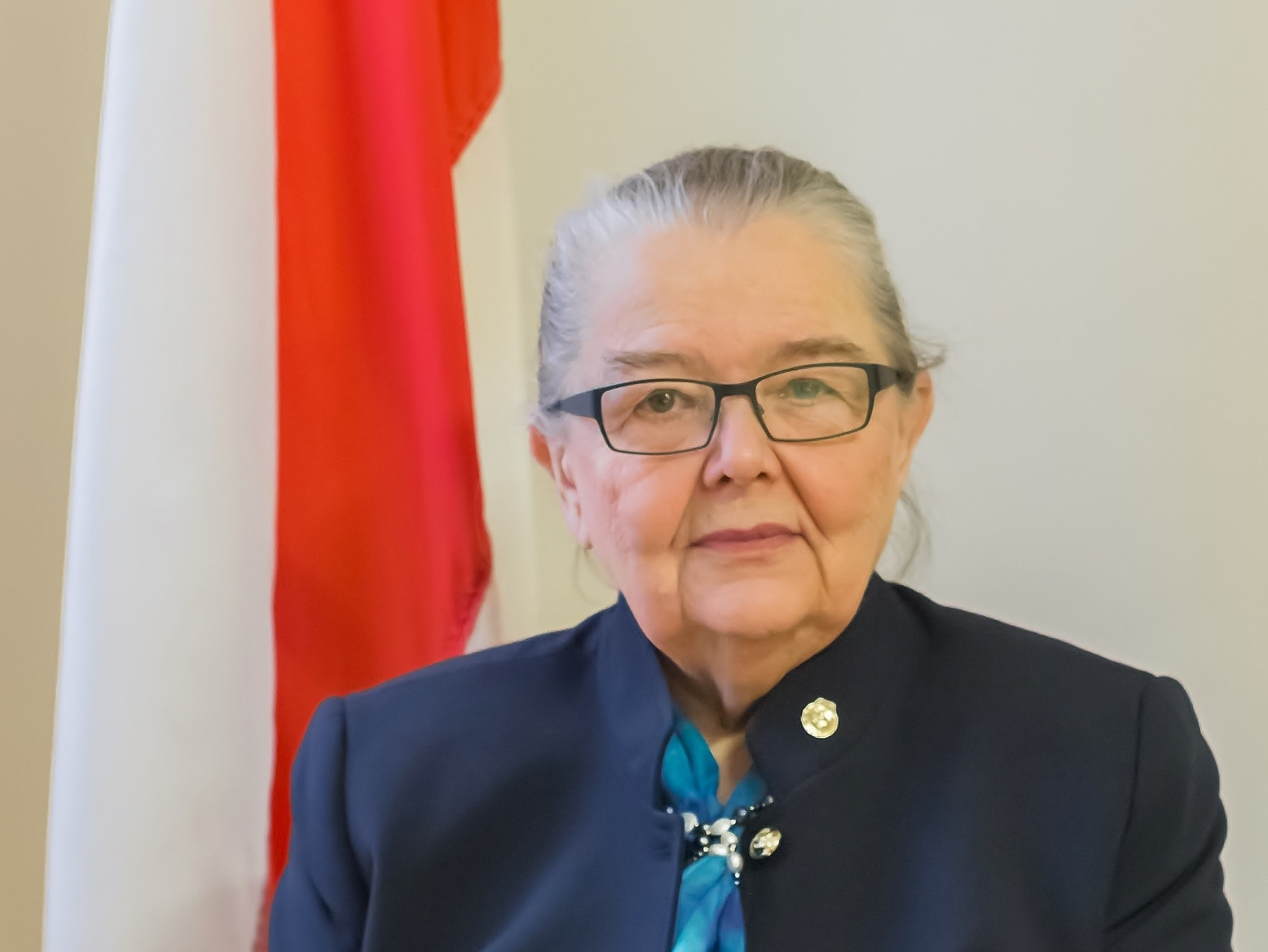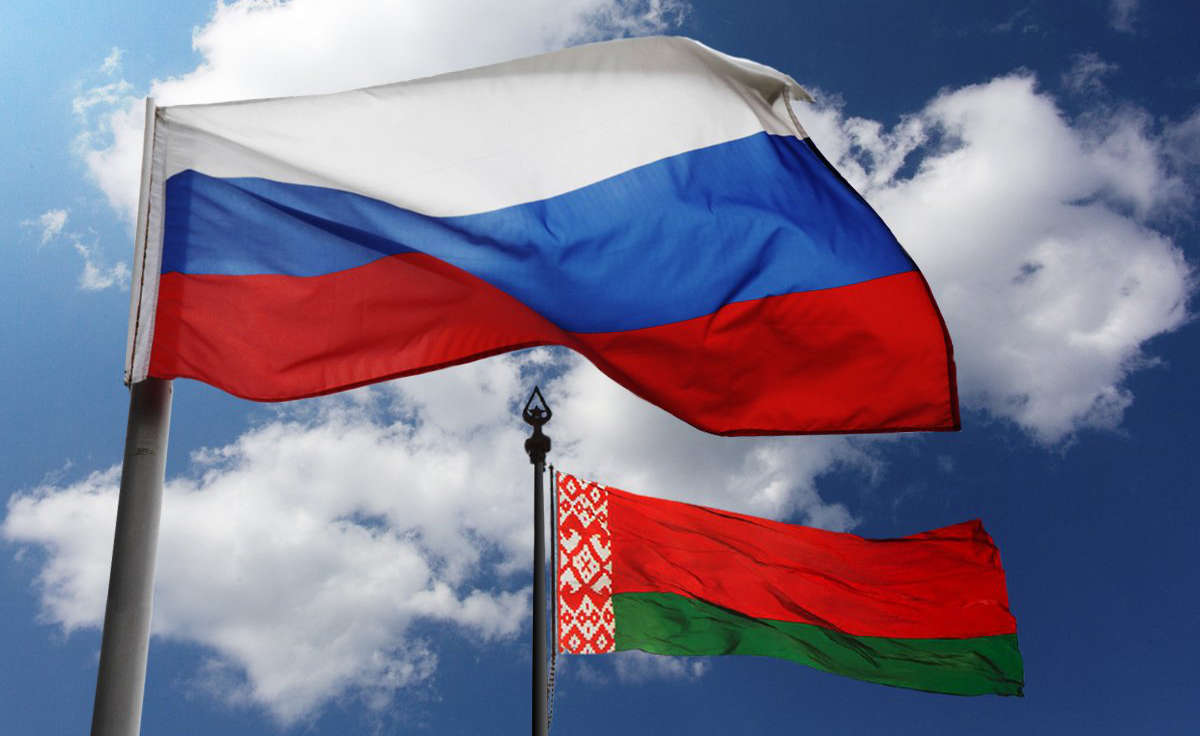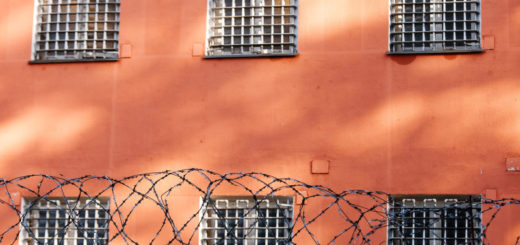David Kramer: Seeking Justice and Freedom in Belarus

Statement of David J. Kramer, Senior Fellow, Steven J. Green School of International & Public Affairs, at the Hearing of the U.S. Helsinki Commission, September 21, 2021
Dear Chairman Cardin, Co-Chairman Cohen, Members of the U.S. Helsinki Commission:
It is a privilege for me to appear before you today, albeit virtually. I had the distinct honor of being a member of this august Commission when I served as Assistant Secretary of State for Democracy, Human Rights at the end of the George W. Bush administration. I’m grateful for this opportunity to be back with you. The Commission performs extremely important work, proudly upholding the commitments made under the Helsinki Final Act of 1975 and ensuring that we and other members of the OSCE live up to those commitments.
Today, we are here to discuss a country, Belarus, whose illegitimate regime, the Lukashenka regime, does not fulfill any of the Helsinki Accords commitments, especially when it comes to the human dimension. Your hearing today is an extremely important way to spotlight what is happening in Belarus and in the region. It comes two months after the pathbreaking visit to the United States by Sviatlana Tsikhanouskaya, the leader of the democratic forces in Belarus and the true winner of last August’s presidential election.
Tsikhanouskaya has shown tremendous courage and leadership under extremely adverse circumstances. We owe her and those standing with her a debt of gratitude for holding true to the values enshrined in the Helsinki Accords in the face of grave threats and challenges. I also wish to acknowledge my fellow panelists for the bravery they have shown and their commitment, and that of the organizations and movements they represent, to the cause of democracy and freedom. It is an honor to appear with them here today.
While last August’s stolen presidential election marked a turning point in Belarus and a wake-up call for much of the world, the situation in that country has been dreadful for many years. Ever since winning the presidential election in Belarus 27 years ago, Lukashenka has concentrated power into his own hands and has run the country into the ground, disappearing critics, attacking journalists, imprisoning opponents, torturing detainees, enfeebling his nation and selling out Belarus’ sovereignty and independence in exchange for Russian support. He urged Belarusians to take a sauna, drink vodka and ride a tractor to stave off infection from the COVID pandemic. His lunacy, repression and corruption reached such levels that by the time of last August’s election, despite Lukashenka’s efforts to rig it, the vast majority of voters decided they had had enough.
Tsikhanouskaya, whose husband was disqualified from participating in last August’s presidential election and then arrested, stepped in for her husband and won – yet was denied victory and then was forced out of the country. In unprecedented numbers, hundreds of thousands of Belarusians protested Lukashenka’s blatant stealing of the election, in which it was crystal clear that he lost – and by a wide margin.
In response to the protests, Lukashenka launched a massive and vicious crackdown against the people of Belarus. A number of people died at the hands of Lukashenka’s thugs, tens of thousands were arrested, many endured torture, hundreds remain political prisoners, and many more were driven out of the country. Journalists both domestic and foreign, including a number associated with RFE/RL and other Western outlets, have been special targets of Lukashenka. In a clear act of air piracy, if not outright terrorism, Lukashenka in May forced down a Ryanair flight traversing Belarusian territory to apprehend a Belarusian blogger and journalist, Roman Protasevich, who was on board. A military aircraft flew close to the civilian airliner to leave it no choice but to land in Minsk, endangering everyone on board. It is worth noting that a short time later Russian authorities, taking a page from the Lukashenka authoritarian playbook, forced a Lot Airliner to return to the terminal in St. Petersburg to arrest a Russian activist on board, Andrey Pivovarov. If any of us fly over an authoritarian regime and that regime suspects a critic or activist is on board, we might be subject to similarly dangerous stunts.
In another alarming incident, Lukashenka’s agents likely murdered Vital Shyshou, a Belarusian activist who was living in Ukraine and was found hanged from a tree in Kyiv. That act of transnational repression, an increasingly common act carried out by authoritarian regimes, was designed to warn those who have fled Belarus that they may not be safe even outside of the country. All this means that blood is dripping from Lukashenka’s hands, as he engages in the worst human rights abuses in Europe and ranks among the worst in the entire world. That this is occurring in the heart of Europe and on the territory of the OSCE makes this our concern.
Making matters worse, Lukashenka this summer began flying thousands of migrants from the Middle East to Minsk and then forced them across the border into neighboring Lithuania in particular but also Poland to overwhelm their immigration systems in retaliation for those countries’ support for Belarusian democratic forces. This inhumane weaponization of migrants has posed serious security and humanitarian challenges for these countries, already strained by the influx of fleeing Belarusians and Russians, and has forced them to take drastic measures to protect their borders. Their fellow EU member states and the United States need to do more to to support these frontline states and push back on this latest outrage from Lukashenka.
Putin’s Support for Lukashenka Makes All the Difference
Without support from Russian President Vladimir Putin and his circle, Lukashenka undoubtedly would no longer be in power. Putin has provided military, security, political, financial and propaganda backing to prop up his like-minded counterpart in Minsk. Utterly dependent on Putin for staying in power, Lukashenka has left Belarus more vulnerable to Putin’s whims and virtual takeover while isolating his regime from the respected part of the international community. By prolonging Lukashenka in power, Putin, too, has the blood of Belarusians on his hands. It is widely known that Putin and Lukashenka despise each other, though for the time being they seem to have put aside their differences given that they have met in person more than half a dozen times since last August’s election. If Putin had an alternative to Lukashenka, the Russian leader likely would have found some way to install a new person in Minsk. At the same time, Putin does not want to see regime change in Belarus at a time when there is growing popular pressure for such change.
Putin’s fear of seeing like-minded authoritarian leaders driven from power as a result of popular movements and opposition dates back to the “color revolutions” in Georgia in 2003 and Ukraine in 2004 as well as the Arab Spring movements in 2011 that brought down a number of tyrants in the Middle East. Seared into his memory is what happened to Qaddafi in Libya in 2011 and Yanukovych in Ukraine in 2014. In response to the latter, Putin illegally annexed Crimea and invaded the Donbas region of Ukraine. He refuses to accept that people in other countries, to say nothing of Russians themselves, are capable, on their own, of demanding democratic change and an end to corrupt rule. They must be instigated from the outside, in particular from the United States.
If not stopped, Putin worries these movements spurred on by the West could spread to Russia itself. This insecurity on Putin’s part, combined with a degree of brazenness at the same time, has produced the worst human rights crackdown inside Russia since the break-up of the Soviet Union. Things got noticeably worse in the lead-up to this past weekend’s Duma elections – which the OSCE declined to observe due to limitations Russian authorities sought to impose on the mission – reflecting the Kremlin’s recognition that it cannot afford to leave things to chance given the low ratings of the party in power, United Russia. Thus, any real opposition forces and individuals were disqualified from running, and Russian authorities pressured American technology companies to remove apps from their systems that were designed to direct voters to candidates other than United Russia members, a system called “smart voting.” Last Friday, Apple and Google caved to such pressure and removed the smart voting app. Just like he remembers the color revolutions and the Arab Spring, Putin will never forget the protests in Russia itself after fraudulent Duma elections in 2011 that continued into 2012, until an ugly crackdown against the demonstrators. There, too, he accused the U.S. and then-Secretary of State Hillary Clinton for giving the “signal” for people to turn out in the streets, since he finds it incomprehensible that Russians themselves, fed up with his rule and unhappy with his return to the presidency, would protest on their own against him.
This explains, in part, Putin’s support for Lukashenka. Belarusians on their own, Putin undoubtedly believes, are incapable of turning out into the streets. Once again, according to his conspiratorial mind, they must be instigated by the West – and must be stopped. Unlike the protests in Ukraine in 2013-14 in which Yanukovych’s u-turn on signing agreements with the European Union triggered the demonstrations in the Maidan, the protests in Belarus were neither pro-Western nor anti-Russian. They were anti-Lukashenka and pro-Belarus. By supporting the unpopular, illegitimate and brutal dictator in Minsk, Putin risks turning the people of Belarus against him and Russia, much like his invasion of Ukraine in 2014 drove up support among Ukrainians for joining NATO.
At the same time, Putin does not want the responsibility and economic burden of incorporating Belarus into Russia and seems hesitant to formalize the union state the two governments signed back in 1999 between Lukashenka and Putin’s predecessor, Boris Yeltsin. After amending the Russian constitution last year through a rigged plebiscite to extend his ability to stay in office potentially until 2036, Putin no longer needs a Russia-Belarus Union State as an option for staying in power.
During the recent and fifth in-person meeting this year between Putin and Lukashenka, Putin reaffirmed his support for his neighbor, but the two leaders did not finalize the union state treaty, as some had anticipated. In addition to Putin’s reservations about finalizing the deal, Lukashenka appears to have concluded that he would rather be leader, even illegitimate, of an independent Belarus than a vassal under Putin. And yet to stay in power, he has increased his dependence on Putin and Russia and vitiated Belarus’ sovereignty and independence in the process. Lukashenka is only interested in staying in power; in doing so, he has done stunning damage to Belarus as a country and its people.
While Putin may not be interested in full absorption of Belarus, he is exploiting Lukashenka’s vulnerability and dependence on the Kremlin to expand Russia’s military footprint in the country. This includes the stationing of Russian military aircraft and other weapons systems in Belarus and a record number of military exercises this year between the two countries’ militaries. As analyst Brian Whitmore has noted, “the constant rotation of Russian forces amount[s] to a de facto permanent Russian troop presence in Belarus.”
The Zapad military exercise that concluded last week on the territory of Belarus and Russia generated great concern in the Baltic states, Ukraine and Poland. Belarus provides Russia with a more westward military position – and a more proximate threat to Belarus’ neighbors. According to the Russian defense ministry, some 200,000 personnel participated in the exercise, even if only 12,800 troops, an apparent violation of the Vienna Document of the OSCE, a protocol designed to ensure transparency regarding military exercises.
Why Should We Care? What Can and Should We Do?
For starters, Lukashenka’s blatant abuse of human rights is happening in the heart of Europe, in a country of nearly 10 million people that has threatening spillover effects into other nations, most notably Lithuania, but also Poland, Ukraine and Latvia. Three of those four countries are fellow NATO member states with Article 5 security guarantees. Lukashenka’s weaponization of migrants is a form of hybrid warfare that poses serious risks to those neighboring states – and is a gross violation of those migrants’ human rights. His decision to force the Ryanair flight to land in May endangered everyone on that plane and, if repeated, could result in even more disastrous consequences in the future. The murders of Belarusian activists in other countries underscore the threat Lukashenka and his security forces pose to life, liberty and rule of law – quite simply, to our way of life.
To ignore what is happening would not only betray our values and norms but the people of Belarus struggling for a better future who look to us for support. They are not asking us to fight their battle for them but to stand up for freedom and democracy and against authoritarianism. They also want the West to end its enabling of the Lukashenka regime, which we have been guilty of before by misguidedly lifting sanctions and seeking normalization with that regime. No U.S. secretary of state or national security adviser should have met with Lukashenka, as Mike Pompeo did last February and John Bolton did the year before. Such meetings legitimized a brutal dictator who should be shunned, not courted.
Supporting the democratic forces in Belarus is consistent with the emphasis President Biden has placed on human rights and freedom as part of his foreign (and domestic) policy agenda. In the struggle of democracy versus authoritarianism, Belarus stands out as a test case for the West.
The situation in Belarus also represents a major challenge to the OSCE and the concomitant human dimension commitments under the Helsinki Accords. As this Commission knows full well, the 1991 Moscow Concluding Document states: “The participating States emphasize that issues relating to human rights, fundamental freedoms, democracy and the rule of law are of international concern, as respect for these rights and freedoms constitutes one of the foundations of international order. They categorically and irrevocably declare that the commitments undertaken in the field of the human dimension of the CSCE are matters of direct and legitimate concern to all participating States and do not belong exclusively to the internal affairs of the State concerned.” In other words, what is happening in Belarus is our business and that of other OSCE member states. Moreover, the vision of a Europe whole, free and at peace cannot be realized as long as Belarus remains under dictatorial rule, supported by the like-minded Putin regime.
For the most part, the Western response to the situation in Belarus has revolved around the imposition of several rounds of sanctions on Lukashenka and his regime, most recently on August 9, the one-year anniversary of the stolen election. The targets of these measures include a number of individuals and Lukashenka himself as well as enterprises in the potash and energy sectors. There is no doubt these have made life more difficult for the regime, and yes, for the people of Belarus, too. If they have made Lukashenka more dependent on Russia, that is the fault of Lukashenka, not the West. These measures need to be ramped up on a regular basis, but they need to go farther. The West should cut off all trading in Belarus debt, including on the secondary market. It should have blocked the IMF from granting nearly $1 billion in Special Drawing Rights (SDRs) provided for many countries due to the pandemic. This was a lifeline that will only benefit Lukashenka, not the Belarusian population.
As I argued in testimony in May before the Tom Lantos Human Rights Commission, the West should go after the so-called wallets or moneybags, individuals connected to Lukashenka who prop him up financially. These include Russian figures who have been instrumental in Lukashenka’s staying power, as well as Belarusians. Cut off the flows from them and you reduce Lukashenka’s days in power.
The EU and UK, but not the United States, have sanctioned Mikhail Gutseriyev, a Russian-British oligarch who is very close to Lukashenko. Gutseriyev helped Lukashenka replace TV presenters who quit in protest over the crackdown and replaced them with RT fill-ins. His son bought the fifth largest bank in Belarus, and his oil company Safmar was the only supplier that continued to ship oil to Belarus after Putin cut shipments in January 2020. The United States should target him along with German Gref and Sberbank, which has invested hundreds of millions of dollars into Belarusian real estate and has its own Belarusian subsidiary. Gref has expressed his full support for Lukashenka during numerous visits to Minsk. Other Russian banks and companies that prop up Lukashenka – like VTB, VEB, Gazprombank, Gazprom, Slavneft, Rosneft and Uralkali – should be sanctioned, too.
When Belarusian presenters resigned last summer over the crackdown, Russian propagandists – including employees of RT – were brought to Minsk to fill the airwaves with pro-Lukashenka nonsense. They are not journalists – they are dangerous propagandists and should be targeted for sanctions. For that matter, RT as a whole should be sanctioned; it is a nefarious propaganda arm of the Kremlin pretending to be a journalistic outlet.
We need to inform our allies in the Middle East, who have provided funding and support for Lukashenka, that they can do business with us or with the Belarusian dictator, but not both. It is time for them to make a choice. We also need to ensure that no American citizens or companies are doing business with Lukashenka and thus helping to prop him up. In addition, we must do everything we can to stop Lukashenka’s weaponization of migrants and support those countries on the receiving end as well as the innocent victims of such inhumane measures. Standing with Lithuania against Chinese pressure in a dispute involving Taiwan, which Secretary of State Blinken has done, is important but no less important is pushing back on Lithuania’s reckless dictator next door.
Sanctions are a tool, sometimes a very effective tool, but they must be part of a larger strategy and used systematically. Accordingly, we need a clear articulation of our goals and policy that should start with this: we will never recognize Lukashenka as the legitimate leader of Belarus. He may have come to power through fair elections in 1994, but he long ago forfeited any right to be considered a legitimate leader, well before trying to steal last August’s presidential election.
As long as Lukashenka remains in power, illegitimately, Belarus has no hope of a better, brighter future. With him gone, Belarus has no guarantee of a better, more democratic future, but for the first time it will have such a possibility. Thus, Lukashenka’s departure from power must be the overriding goal of the West. This would align us with the aspirations of the people of Belarus, too.
Achieving this objective should be done through maintaining isolation of the regime in Minsk and increasing sanctions as discussed above. New free and fair elections are possible only after Lukashenka has left the scene. Only his departure from power will create the space and possibility for Belarus to start a new chapter and regain the hope of beginning a transition away from dictatorship and toward democracy. We also must press for the release of all political prisoners and accountability for the gross human rights abuses perpetrated by Lukashenka and his thugs.
We must warn Putin that continued support, military or otherwise, for his Belarusian counterpart will incur costs for the Kremlin. As it is, we are witnessing the not-so-slow Russian takeover economically of Belarus, and that, too, needs to be stopped. We have wanted to avoid turning Belarus into an East-West clash, but we also need to be mindful that our caution on that score can get in the way of doing what’s right. So far, the democratic movement in Belarus has been neutral toward Russia, but miscalculations by Putin could turn sentiment against their neighbor to the east.
Finally, the West needs to prepare to support Belarus when it finally reaches the day when Lukashenka is gone from the scene. It will need lots of help, and the people of Belarus have demonstrated that they deserve it. The EU has pledged some $3.7 billion in support to help the country move onto a democratic path, and the United States should also get ready for a serious assistance package when better days come for Belarus.
One way or another, Lukashenka’s days are numbered. He may think he has regained the upper hand, but he has lost all legitimacy and relies on massive repression and Putin’s support to stay in power. He has hung on longer than some, including this author, thought but that is due to Putin’s backing. We must tighten the screws on him and his regime, as well as his Russian enablers, and stand with the brave people of Belarus. Amid grave risks, the people of Belarus seek an end to dictatorship and the dawn of a new, more democratic day in Belarus. They are upholding the finest tradition of the Helsinki Accords, and that should be a cause worthy of our support.



